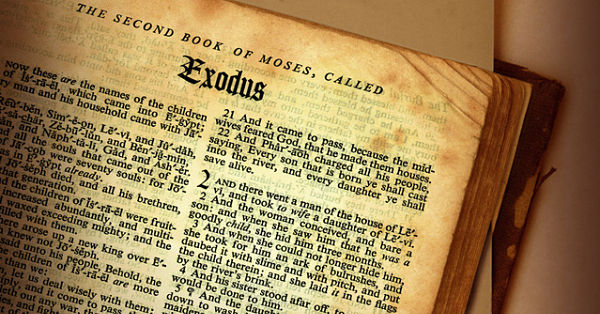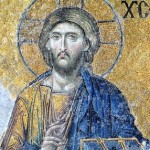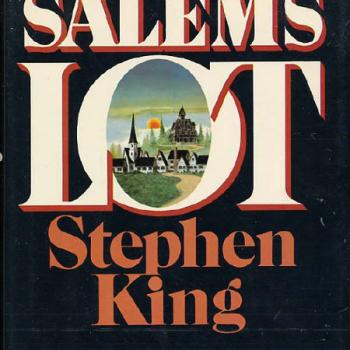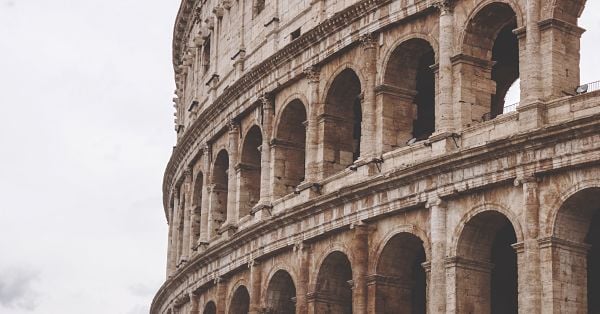This is a short sermon I preached recently. I’ve had to practice crafting and preaching short sermons recently. It’s difficult, but it is also extremely rewarding. Short sermons force me to really understand the biblical text well. You have to know it well enough to communicate the deep truths present in the text in concise format. I still prefer the 30-45 minute sermon as ideal, but these shorter ones do have their place.

“The God Who Keeps His Promises”
13 But Moses said to God, “If I come to the Israelites and say to them, ‘The God of your ancestors has sent me to you,’ and they ask me, ‘What is his name?’ what shall I say to them?” 14 God said to Moses, “I Am Who I Am.” He said further, “Thus you shall say to the Israelites, ‘I Am has sent me to you.’ ” 15 God also said to Moses, “Thus you shall say to the Israelites, ‘The Lord, the God of your ancestors, the God of Abraham, the God of Isaac, and the God of Jacob, has sent me to you’:
This is my name forever,
and this my title for all generations.
16 Go and assemble the elders of Israel, and say to them, ‘The Lord, the God of your ancestors, the God of Abraham, of Isaac, and of Jacob, has appeared to me, saying: I have given heed to you and to what has been done to you in Egypt. 17 I declare that I will bring you up out of the misery of Egypt, to the land of the Canaanites, the Hittites, the Amorites, the Perizzites, the Hivites, and the Jebusites, a land flowing with milk and honey.’ 18 They will listen to your voice; and you and the elders of Israel shall go to the king of Egypt and say to him, ‘The Lord, the God of the Hebrews, has met with us; let us now go a three days’ journey into the wilderness, so that we may sacrifice to the Lord our God.’ 19 I know, however, that the king of Egypt will not let you go unless compelled by a mighty hand. 20 So I will stretch out my hand and strike Egypt with all my wonders that I will perform in it; after that he will let you go. 21 I will bring this people into such favor with the Egyptians that, when you go, you will not go empty-handed; 22 each woman shall ask her neighbor and any woman living in the neighbor’s house for jewelry of silver and of gold, and clothing, and you shall put them on your sons and on your daughters; and so you shall plunder the Egyptians.” (Exod. 3:13-22)
Intro and Exodus Recap
Exodus is one of those biblical books that continually draws me back to it. No matter how many times I think I’ve understood it, no matter how many times I think that I’ve got a grasp on it, I find that Exodus has new mysteries for me to delve into.
That’s the case with today’s text. I’ve heard the story of Moses and his call by God to rescue Israel countless times. I’m sure a lot of you have too, especially if you grew up in church. It is a favorite story of Sunday School teachers. And that is all well and good. But there is a lot more going on in this story than we might realize.
First, a little background info is in order. Up to this point, Israel has been enslaved in Egypt by a king called Pharaoh. Now this Pharaoh was a cruel ruler, who coveted power over almost everything else. And because he coveted power so much, he grew fearful of the Israelites that he had enslaved. At the beginning of the book of Exodus we are told of how Pharaoh tried to beat down the Israelites by placing heavier and heavier burdens on them. When this failed, he went so far as to order that newborn Israelite baby boys be killed.
But one baby boy was saved from this terrible fate. His name was Moses. Moses was not only spared from death, he was even adopted by Pharaoh’s daughter! Moses, the son of Israelite slaves, grew up in the household of the king of Egypt. One day though, his fortunes all changed. While trying to protect a Hebrew slave, Moses ended up killing an Egyptian. Moses then had to flee from Egypt, leaving behind the home he’d known all his life.
So Moses made a new life for himself in a distant land called Midian. He married and had a son. He worked as a shepherd for his father-in-law. It wasn’t the royal palace of Egypt, but it was a good life.
And while all of this was happening, God saw the oppression of the Israelites. And God remembered his people. And so God appears before Moses in the form of a bush that is burning, but that is not consumed by the flames. He calls Moses to act as his emissary to free Israel from their slavery in Egypt. Moses, of course, objects, and asks why on earth God would choose him for such a task. But God promises to be with him. And this is where our text picks up.
Text Exposition
Now Moses is still not convinced that he is the man for the job of freeing Israel. I mean, who would think they were up to such a task?! Moses has already objected on the grounds of his seeming insignificance. Of course, this is no deterrent to God. And so, Moses gives a second objection. He asks God what exactly he should say to the Israelites after he tells them that the God of their ancestors sent him.
Now, Moses may be hedging a bit here. It is sort of like when your boss or manager gives you an assignment and you come up with multiple excuses that are legitimate as to why you shouldn’t do it. But really, you’re just trying to get out of the assignment. Moses might be doing a little of that here.[1]
But Moses is also asking a legitimate question. You don’t simply waltz into Egypt, telling the Israelites that the God of their ancestors is going to free them from slavery, without at least a name to go on. There really will be some opposition to such a claim and Moses wants to back up his message.[2] If Moses is going before Pharaoh as the emissary of an opposing King, then he needs to give proof of his official authorization.[3]
And so God tells Moses His name. But Moses gets a bit more than he bargained for. Now, a brief note here. In the ancient world, someone’s name—especially a deity’s name—wasn’t simply a label; it said something about the nature of the person who bore it.[4] So when Moses asks God for His name, he is expecting to find out something about this God, just like the names of Egypt’s gods said something about them.
But as I said, Moses gets a bit more than he bargained for. God gives Moses His name, but not just a name. God answers Moses and says: “I AM WHO I AM.” He then immediately tells Moses to say to the Israelites that, “I AM” sent him. God then finishes fully revealing His name by saying, “The LORD—Yahweh—the God of your ancestors, the God of Abraham, the God of Isaac, and the God of Jacob.”
I imagine Moses standing there with a look of shock and awe on his face after hearing this. All joking aside though, this is huge. God’s name is reflective of His very nature; who He fundamentally is. Many readers of this text over the centuries have noted how the divine statement of “I AM WHO I AM” conveys the sense of divine presence. In the revelation of his very name God is essentially saying that He will be present with His people.[5] And what is even more important, is that Yahweh states that this is His name “forever.” God’s presence, like His name, with His people is enduring.
That’s a pretty substantial answer to question, “what is your name,” if you ask me.
After answering Moses’s second objection, Yahweh again instructs Moses what to do. Moses is to assemble the elders of Israel and alert them to God’s rescue plan. He is to remind them that the God of their ancestors has heard their cries and has now come to bring them out of their bondage. Further still, Moses is to tell the elders that God will bring them into a land of rich abundance. Indeed, the phrase “a land flowing with milk and honey” was an ancient way of speaking of fertile crops and livestock.
Thus, God is not simply giving the Israelites—this oppressed slave people—their freedom. He is also giving them a life worth living. He is giving them hope. For you see, in that day to have the prospect of land meant security, both for yourself and for your children and grandchildren. God was giving Israel freedom. God was also giving Israel a future.[6] The future He promised to Abraham so long ago.
However, Yahweh warns Moses that Pharaoh will not let the Israelites go so easily. Greed and the lust for power—the greed of the tyrant—are not so easily broken. But Yahweh makes good on His name here. He promises that He will be with Moses and the Israelites and that He will “stretch out his hand and strike Egypt” with all His “wonders.” These wonders, as seen in the ten plagues later in the narrative, are God’s interventions in human affairs. These wonders are His mighty acts of power done on behalf of His people.[7]
It is God who will defeat Pharaoh. It is God who will bring the people out of bondage in Egypt. It is God who will bring the Israelites into a good land and life, the kind that was promised to their forefather Abraham.
Lastly, God tells Moses that when Pharaoh finally releases the Israelites, they will not leave empty-handed. In the final verse of the text God says to Moses, “each woman shall ask her neighbor and any woman living in the neighbor’s house for jewelry of silver and of gold, and clothing, and you shall put them on your sons and on your daughters; and so you shall plunder the Egyptians.”
At first glance this doesn’t sit very easily with us does it? Especially as modern people, when we hear the word “plunder” we think of criminal activities. But the “plunder” here is of an entirely different order. This is a reversal of social power. The oppressed Israelite slaves—who toiled for years under back-breaking conditions to build Egypt’s wealth—are now given reparations by their oppressors.[8] And this is yet another example of a God who keeps his promises, for this was the promise made to Abraham back in Genesis (Gen 15:14), that his descendants would come out of oppression “with great possessions.”
In the midst of all of this we see Yahweh—the God of Abraham, Isaac, and Jacob—display His nature as One who frees people in bondage. He hears the cries of the Israelites and comes to rescue them in accordance with His promises to Abraham. In this part of the Exodus story, we see our first, really full glimpse of the God who keeps His promises.[9]
Theological Import for Christians Today
And so, just as Yahweh rescued Israel from Egypt—from slavery into life—so Christ has done the same for us. Christ Himself is the new and better Moses, who leads humanity out of the slavery of sin and death into the life that has begun with His resurrection. In Christ, we see the new and greater Exodus, of which Israel’s Exodus from Egypt was a forerunner.
For you see, the God who commissioned Moses, the God who defeated Pharaoh and the false gods of Egpyt, the God who brought Israel out of slavery, this is the same God who, in Christ, “became flesh and lived among us” (John 1:14). The God who keeps His promises to Israel is the God who keeps His promises to those of us who are in Christ.
You see, this passage from Exodus is not simply a recounting of an event in Israel’s past. By remembering—by participating in—what God did for Israel in Egypt we see how the pattern of God’s actions in history point toward the ultimate, cross-shaped Exodus from the power of sin and death.
Through Christ, we as Christians, are graciously grafted into the grand story of this slave-freeing, promise-keeping God. And it is this God—who promised to be with Moses and Israel then—who promises to be with us now.
Endnotes
[1] Brevard S. Childs, The Book of Exodus: A Critical, Theological Commentary, OTL (Philadelphia: Westminster, 1974), 75.
[2] John H. Sailhamer, The Pentateuch as Narrative: Biblical-Theological Commentary (Grand Rapids: Zondervan, 1992), 246.
[3] Robert Alter, The Five Books of Moses: A Translation with Commentary (New York: W. W. Norton, 2004), 321.
[4] Sailhamer, Pentateuch as Narrative, 246.
[6] T. Desmond Alexander, Exodus, Teach the Text (Grand Rapids: Baker 2016), 25.
[7] Nahum M. Sarna, Exodus, JPS Torah Commentary (Philadelphia: Jewish Publication Society, 1991), 19.















